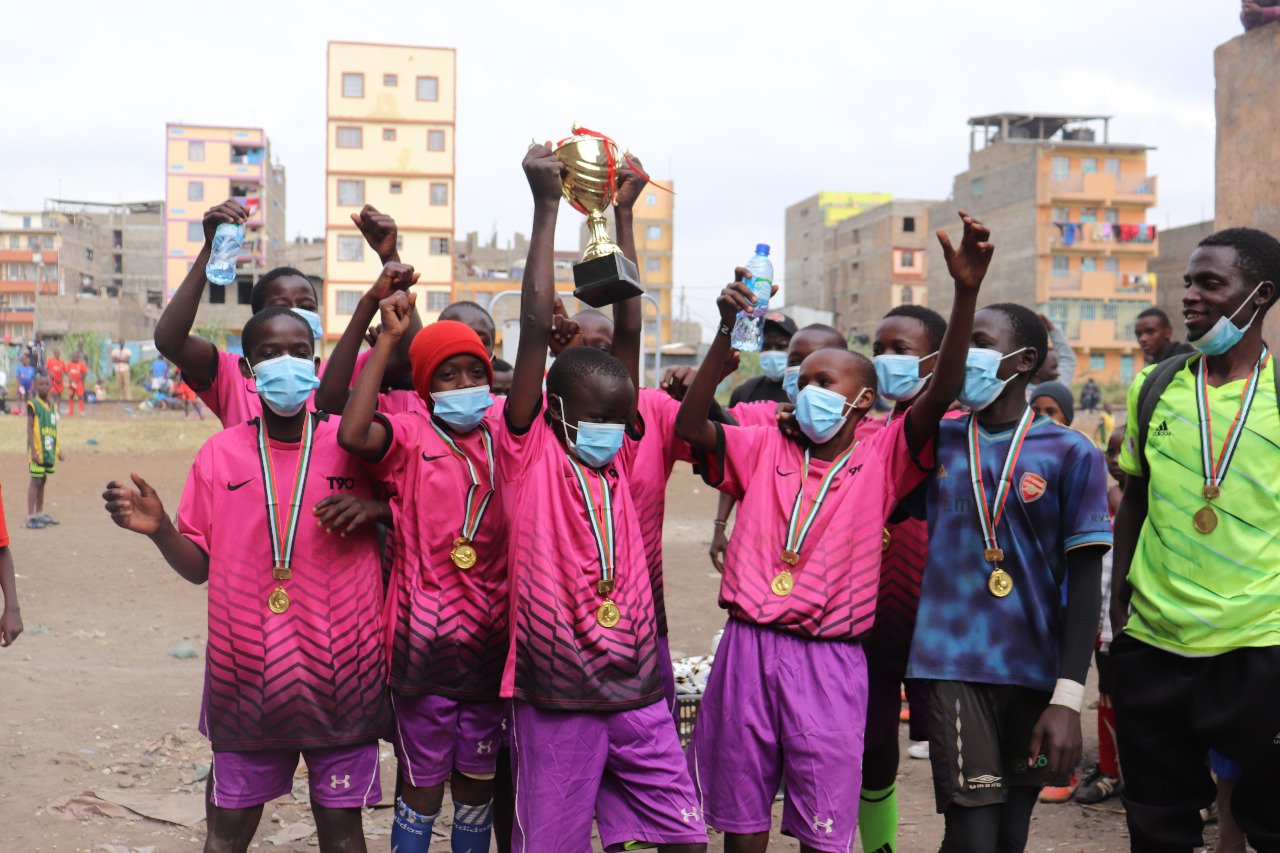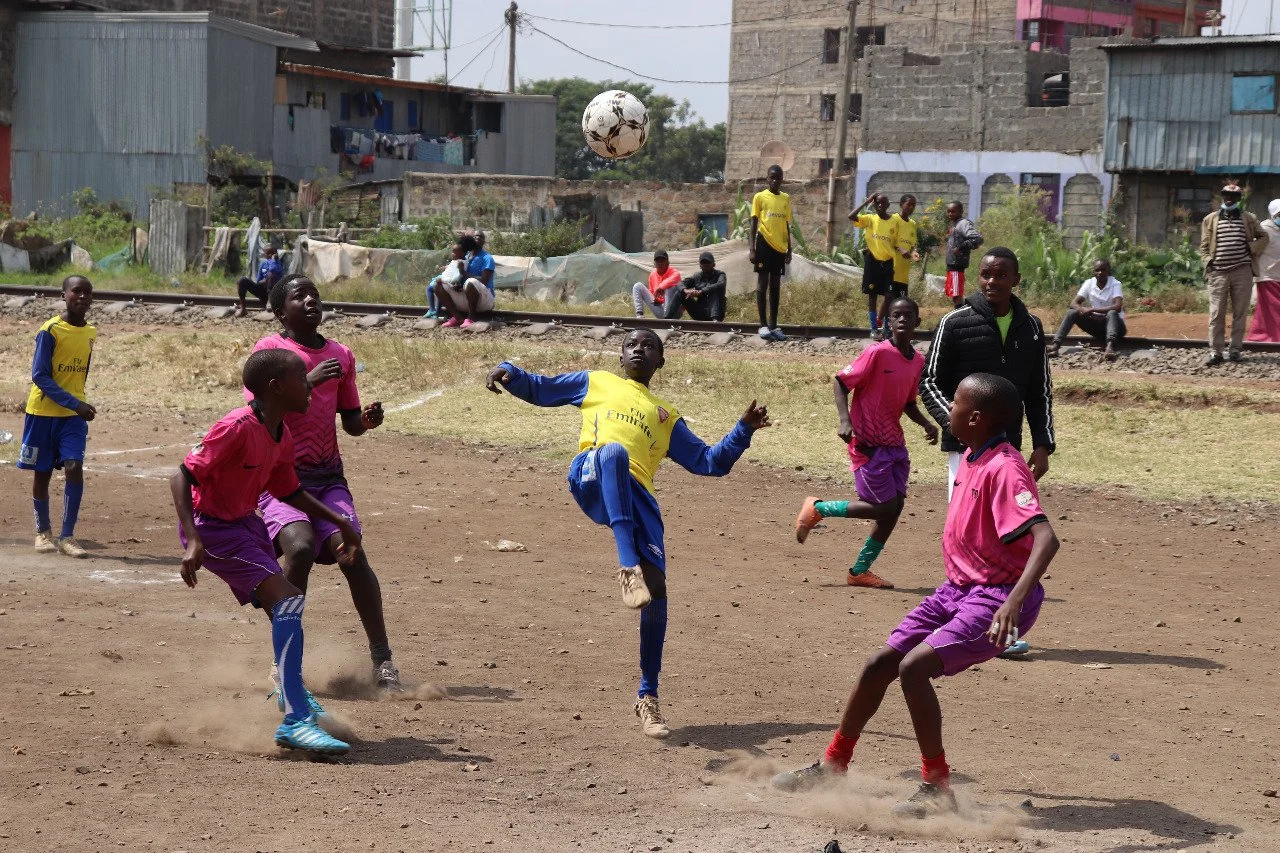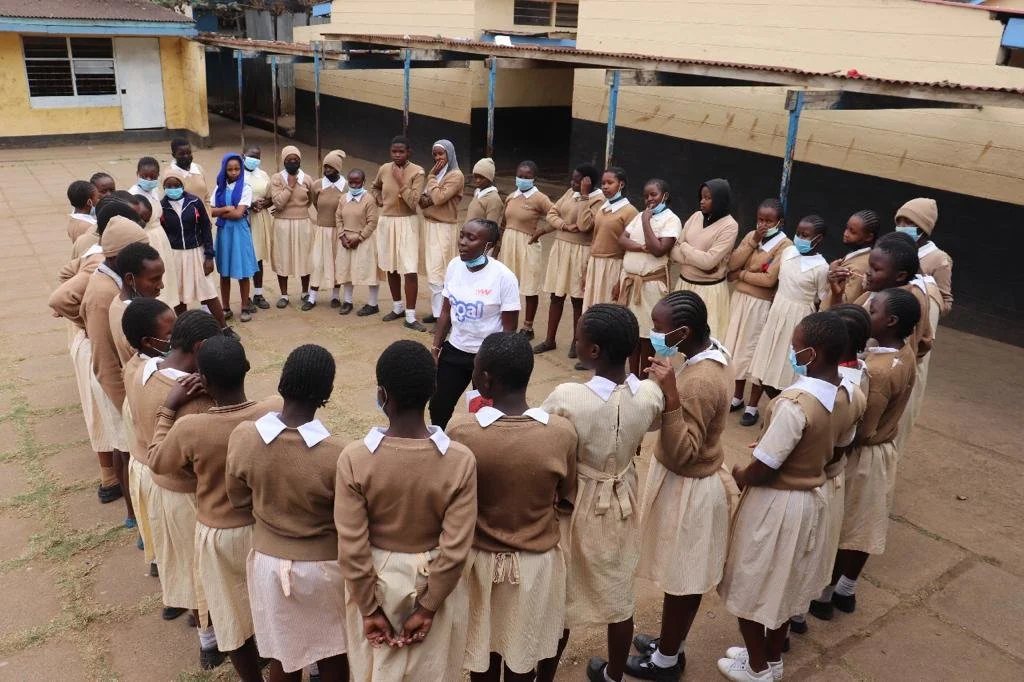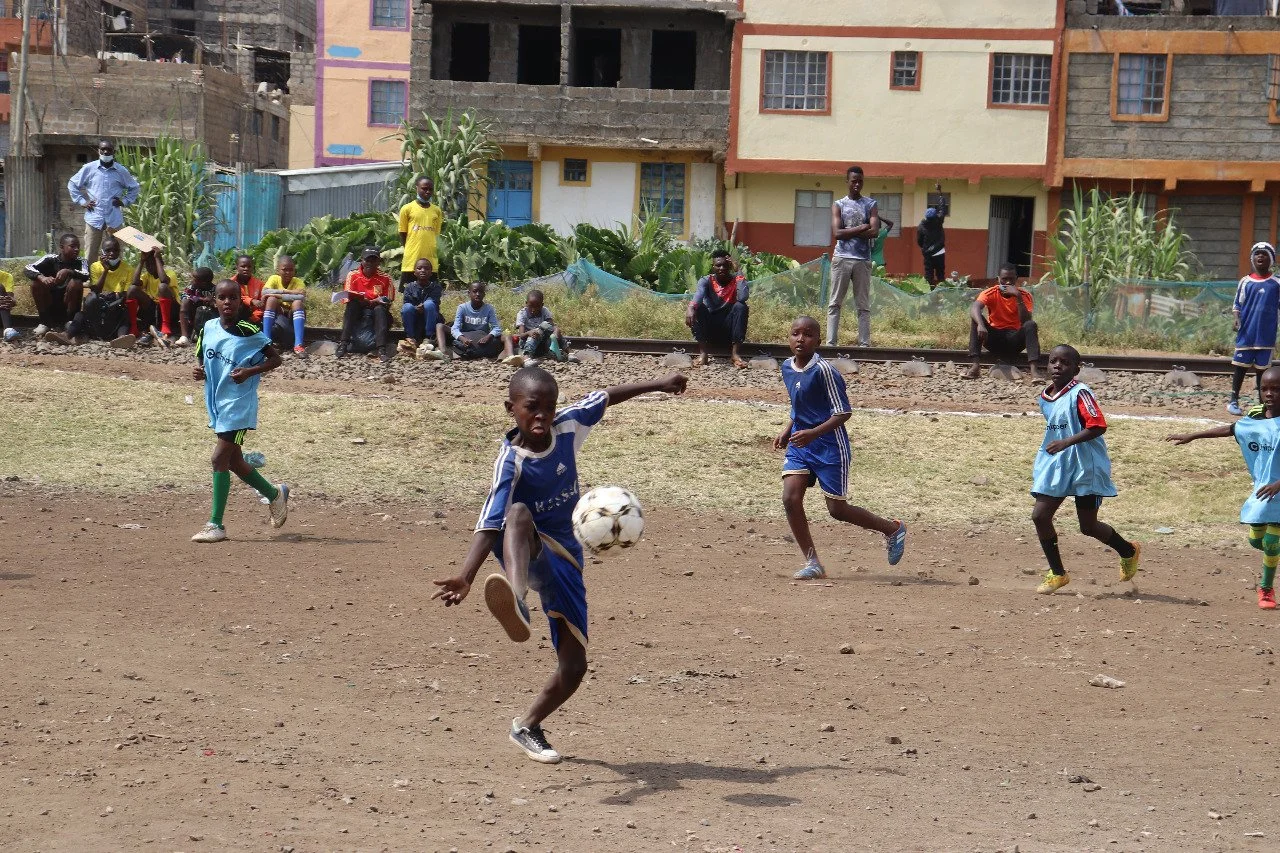More Than a Game: Kenya
|Image: Vijana Amani Pamoja
At the Homeless World Cup Foundation, we say that football is more than a game. This series explores how our partners are using football to create change in their communities.
For many, Majengo in Nairobi is a slum which is known for its high levels of prostitution. For Enouce Ndeche it was where he started his football club, which went onto to become nationwide community programme Vijana Amani Pamoja (VAP).
While playing football in the area, Enouce noticed HIV and AIDS numbers were continuing to climb. He decided it was time to start challenging the stigma and push for change. Enouce was inspired when volunteering at Special Olympics North Carolina to “use sport to make a difference in someone’s life”. So, the football team became a community programme and our Street Football Partner, Vijana Amani Pamoja (VAP) was born. Vijnana Amani Pamoja means ‘Peace Together Youth’.
VAP’s programmes bring young people together from underprivileged communities to raise awareness of HIV and AIDS, tackle stigma surrounding teenage pregnancy and support young mothers. They also help people to learn new skills for work and set up their own businesses. Helping around 3,000 people each year, Enouce says it’s more about the impact on the individual rather than the numbers they reach.
|Vijnana Amani Pamoja means ‘Peace Together Youth’. Image: Vijnana Amani Pamoja
STATE OF HOUSING IN KENYA
Homelessness in Kenya is complicated and hard to measure. More than 7.5 million people live in poorly structured settlements or slums. According to Homeless International, Kenya’s slum population is growing rapidly at nearly 6% each year. (Source: Homeless Hub)
Homes are make-shift and at risk of damage. One of the major hazards is electric fires, as illegal electricity connections are common. One spark can quickly create an uncontrollable fire. As houses are tightly packed together, the fire can quickly rip through a whole row of buildings, leaving people homeless. Without insurance, people are left with nothing.
Enouce and his team give young people from these communities hope through football. VAP create a welcoming and friendly community, which gives people an opportunity to learn.
“COACHES ARE THE ENGINE OF THE ORGANISATION”
The coaches who deliver the programmes are the “engine of the organisation”. Around 70% of them are graduates themselves. This is a key part of VAP’s model, giving former graduates the skills to become trainers and gain a sense of ownership. Coming from the communities where they’re working, they can build meaningful relationships and relate to the young people they’re supporting.
For VAP, football doesn’t only create community, it’s also a tool which is used to tackle stigma surrounding HIV and AIDS. As well as empowering young women and girls through the Goal programme.
Enouce explains: “Pitches become classrooms as interactive discussions and group counselling sessions are complemented by soccer games and activities which demonstrate key messages.”
|Girls take part in the Goal programme Image: Vijnana Amani Pamoja
In 2020, Kenya had the 7th highest rates of HIV and AIDS in the world, with more than 1.4 million people living with the infection (CIA Factbook). The majority of VAP’s participants have lost either one or two parents to HIV.
Stigma surrounding HIV and AIDS is still prominent with young people scared to find out their status and ask for help. Enouce has written extensively about the role of sport in tackling HIV and AIDS. In one article he wrote: “Young people remain a group significantly at risk of HIV/AIDS, with the 15–24 age group accounting for 41 % of all new infections across sub-Saharan Africa. Young women are particularly vulnerable, as females aged 15–24 are over five times more likely to become infected with HIV than males of the same age.”
Enouce goes onto describe the stigmatisation and social isolation facing people who are HIV positive. At VAP they are encouraging young people to take steps to prevent their risk of infection.
“FOOTBALL BRINGS PEOPLE TOGETHER”
Inspired by how football brought people together, Enouce and his team created a football tournament which offers HIV testing. The results are remarkable.
On a normal day, Enouce says, a testing tent would get maybe three people. At their Kick ‘N’ Test tournaments more than two hundred people get tested. Providers have even been known to run out. What’s the secret? If you get a test, you get 5 points for your team.
It’s not restricted to players either, members of the community can get tested and give their points to a team of their choice.
By creating an environment where testing is more accessible and by removing the taboo, Enouce explains they “open the doors for the entire community to get tested.”
For anyone who does test positive, support is on hand with councillors and medical professionals who can prescribe medication straight away. A key point Enouce makes is that the medical teams they work with are youth friendly.
|Image: Vijnana Amani Pamoja
“OUR HEALTH CARE PROVIDERS ARE ALWAYS ON STANDBY.”
Youth friendly medical teams are also vital for supporting young mothers. Almost a quarter of women in Kenya give birth by the age of 18 (Source: VAP). Despite this, there is a still stigma surrounding young mothers and teenage pregnancy.
Premarital sex in Kenya is taboo. It’s a religious country, with 85% of the population identifying as Christian. Stigma surrounding pre-marital sex impacts how young people, especially young women who are pregnant, are perceived by some medical staff who work with them.
Enouce says: “We really need youth friendly health organisations who embrace these young people. Rather than challenging young people and asking them: ‘What have you done getting pregnant? You’re so young.”
Many of the girls who VAP work with are pregnant as a result of abuse. Enouce says cases of rape, abuse and domestic violence have risen during the pandemic. Leading to a higher number of teenage girls becoming pregnant. Enouce says the perpetrators are often family members and known to the victims.
JUSTICE FOR LIZ – A GLOBAL CAMPAIGN
Kenyan authorities faced international scrutiny when 16-year-old girl Liz was brutally gang raped and left disabled by her perpetrators in 2013. The campaign Justice for Liz, which had more than 1.7 million signatures, led to three of the six men being convicted in 2015 and sentenced to 15 years in jail. However, for girls and women in the communities where Enouce works, sexual abuse is rarely reported. He says much more needs to be done to protect young women and girls.
VAP create a safe space for women and girls to gain skills, share experiences and support one another without risk of judgement. Their programme ‘Mrembo’, which means beauty in Swahili, encourages girls and women from ages 10-21 to “build, unveil and restore their inner beauty” through sport. Many participants go on to become coaches and role models.
|Image: Vijnana Amani Pamoja
Their programmes have helped young people to start businesses, supported thousands of young people to find out their HIV status and gain access to the correct medication and have created a community of role models who will inspire the next generation.
What started as a football team has become an inclusive and accepting community helping thousands of young people in Kenya to overcome difficult circumstances and find hope for the future.
Find out more about VAP’s work on their website. As our partner in Kenya, this gives them the opportunity to bring a team to the annual Homeless World Cup.
Words: Rebecca Corbett
Images: Vijana Amani Pamoja





